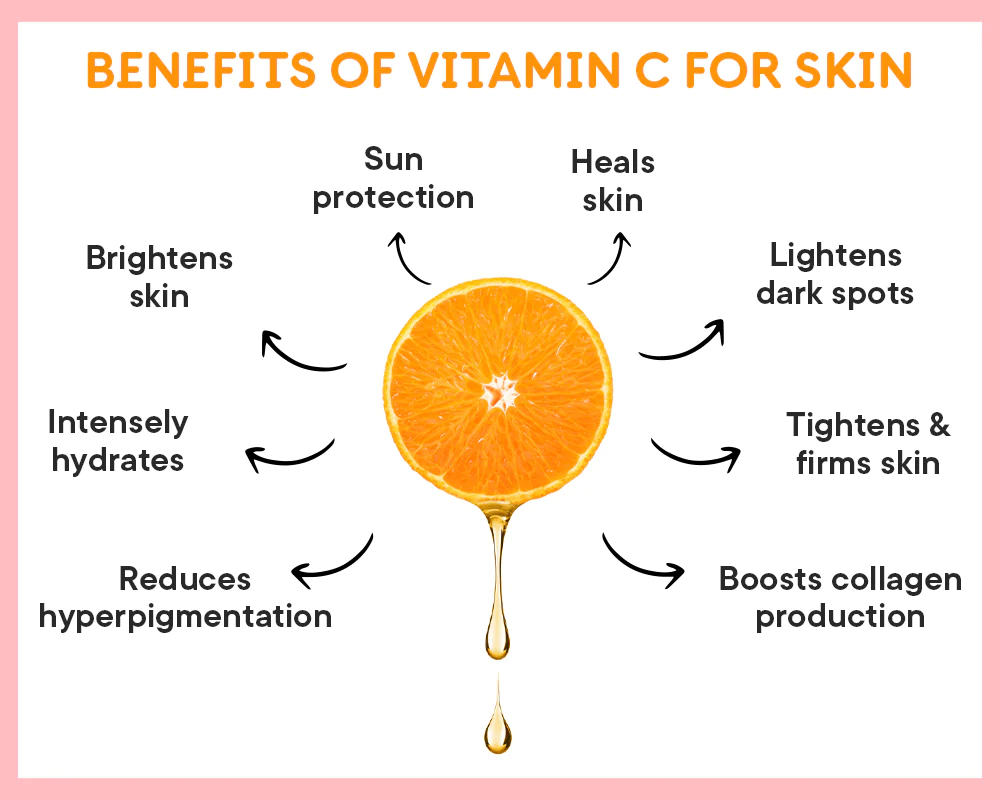Vitamin C, also known as ascorbic acid, is a vital nutrient for maintaining overall health. It plays a significant role in various bodily functions, including boosting the immune system, promoting healthy skin, and aiding in the absorption of iron. This article explores the numerous health benefits of vitamin C, its natural sources, and the fruits and vegetables rich in this essential nutrient.

Vitamin C is well-known for its immune-boosting properties. It helps stimulate the production of white blood cells, which are essential for fighting infections. It also enhances the function of these cells, improving their ability to detect and destroy harmful pathogens.
Vitamin C is crucial for maintaining healthy skin. It promotes collagen production, which helps keep the skin firm and youthful.
Vitamin C enhances the absorption of non-heme iron (the type of iron found in plant-based foods). This is particularly beneficial for individuals who follow a vegetarian or vegan diet.
Vitamin C contributes to heart health by reducing blood pressure and preventing the oxidation of LDL (bad) cholesterol.
Fruits are excellent sources of vitamin C, providing a delicious and nutritious way to meet daily requirements.
Several vegetables are also high in vitamin C, making it easy to incorporate this nutrient into various meals.
 Credits: Total Ayurveda[/caption]
Credits: Total Ayurveda[/caption]The recommended dietary allowance (RDA) for vitamin C varies by age, sex, and life stage. For adults, the RDA is:
Smokers require an additional 35 mg per day due to increased oxidative stress and metabolic turnover of vitamin C.
Vitamin C is an essential nutrient with numerous health benefits, including boosting the immune system, promoting skin health, enhancing iron absorption, and supporting cardiovascular health. Incorporating a variety of fruits and vegetables into your diet can help you meet your daily vitamin C needs and enjoy its many benefits. Regular consumption of vitamin C-rich foods such as citrus fruits, berries, bell peppers, and leafy greens can contribute to overall well-being and disease prevention.
Maintaining a balanced diet rich in vitamin C supports overall health and enhances quality of life by preventing deficiencies and associated health issues. Always consult with a healthcare provider before making significant changes to your diet or taking supplements, especially if you have underlying health conditions or dietary restrictions.